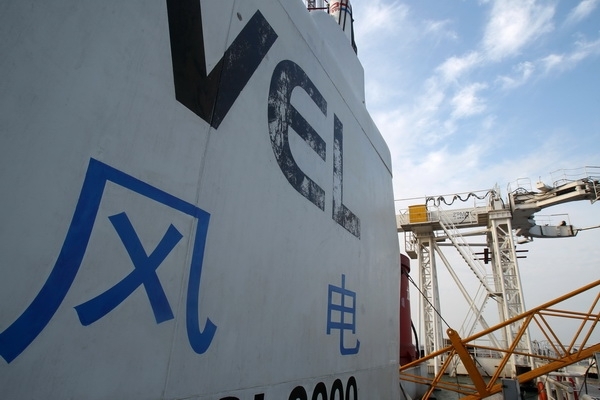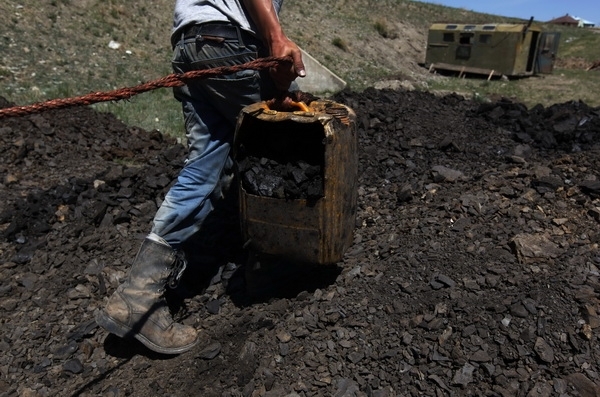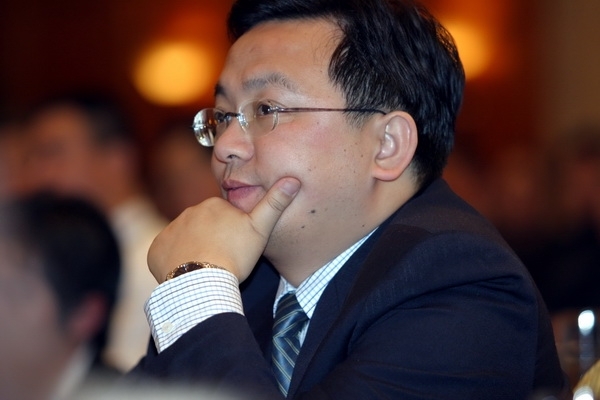

Highlights from the EO print edition, No. 583, Aug 20, 2012

CNPC Seeking Private Capital Partners to Establish New Company
News, cover
~ CNPC, China's largest oil and gas producer and supplier, is leading a push to form a new major energy management corporation that will also receive investment from private companies.
~ According to the plan, the new company will be in charge of developing the third west-east natural gas transmission pipeline project.
~ Aside from China National Petroleum Corporation (CNPC), which is expected to hold a 50 percent stake in the company, the three other major investors are said to be the Urban Infrastructure Industry Investment Fund (全联基础设施产业投资基金) - a fund company that operates under the management of Urban Infrastructure Construction Chamber of the All-China Federation of Industry and Commerce, the Baosteel Group (宝钢集团) and China's Social Security Fund (社保基金).
~ The new energy management company is still in the process of being formed and it's estimated that it will be formally established before the end of the year.
~ The new company's registered capital will reach into the tens of billions of yuan.
~ Though CNPC will hold a large stake in the energy management corporation, the company will not be a subsidiary of CNPC and will operate independently.
~ A person from the Urban Infrastructure Construction Chamber of the All-China Federation of Industry and Commerce said, for the third west-east natural gas transmission pipeline project, the Urban Infrastructure Industry Investment Fund will play the role of attracting private capital to invest in the project.
Original article: [Chinese]

NDRC Maintains Price Controls on Cooking Oil
News, page 4
~ On the afternoon of August 13, the five domestic cooking oil companies - COFCO, Yihaikerry, Luhua Group, Jiusan Oils & Grains Industries Group Co. Ltd and Hope Full Grain Oil Group - were summoned by the National Development and Reform Commission (NDRC). They were notified that the NDRC will continue to implement price controls on cooking oil products.
~ The five companies were also asked to report their cooking oil's factory price, wholesale price and retail price to NDRC on a weekly basis starting from Aug 15.
~ Yihaikerry, COFCO and Luhua account for 45 percent, 15 percent and 7 percent respectively of the small package cooking oil market in China.
~ A number of management-level employees at the cooking oil companies said that due to the sharp increase of soybean prices, oil companies have started to run at a loss. If the situation continues, some domestic cooking oil companies will have to limit or suspend production before year's end, which will impact the supply of domestic cooking oil.
~ The Economic Observer called the pricing division of NDRC regarding this issue on Aug 16, but didn't receive a reply.
~ Li Guoxiang (李国祥), a researcher with Rural Development Institute of Chinese Academy of Social Sciences, believes that in the short term, most domestic oil companies are unlikely to suspend production.
Original article: [Chinese]

Special Feature: Chinese Business Opportunities in Mongolia
News, page 9-13
~ Since the 1990s, bolstered by the "Going Out" policy (走出去) that encourages overseas investment, Chinese people have been trading with Mongolia. In recent years real estate, coking coal, and some other mineral resources have been popular areas of investment in the country.
~ Among the Chinese companies in Mongolia, Sanser TV Station (桑斯尔电视台) garners a lot of attention as a joint venture that's 70 percent Chinese-owned. It's one of the country's most popular TV stations and often broadcasts Chinese programs like Journey to the West (西游记) and Outlaws of the Marsh (水浒传).
~ But Mongolia isn't an easy playing field for foreign investors. Constantly changing government policies and strict supervision put Chinese investors - especially mineral dealers - under great pressure. Lou Batter (刘巴特尔), Chairman of the Mongolia Commercial Commission (蒙古商会), told the EO that huge opportunities come with high risks. Mongolia's mineral industry has experienced both steep gains and losses.
~ Mongolians have mixed feelings toward China. On one hand they rely heavily on Chinese investment, but on the other hand they hold some hostile feelings toward Chinese workers; especially when they talk about how much more developed China is than Mongolia or how Mongolia used to be owned by China.
~ In order to keep domestic support, officials in Mongolia usually have to pander to populist outcry against Chinese, but Gang Baolidao (刚.宝力道), vice minister of Mongolia Mineral Energy Department told the EO, "I'm sorry for what I have to say in public. But personally I regard the Chinese as my friends."
~ A nomadic history hasn't stopped the pursuit of modernization and urbanization among Mongolian youth. Many have decided to move to one of the country's very few cities, sell their herd and find a job.
Original articles: [Chinese], [Chinese] , [Chinese] , [Chinese] , [Chinese] and [Chinese]
New Oriental Puts its House in Order
Corporation, page 31
~ New Oriental Education & Technology Group Inc. (新东方), the largest educational company in China, has had problems overseeing managing of its various separately-run schools. Many of these schools had their own websites and self-designed courses and were using different system of evaluation when recruiting teachers.
~ Things are now starting to change at the NASDAQ-listed English training company.
~ Chen Xiangdong (陈向东), executive president of New Oriental, said the company was designing standardized courses for all of its schools. The information of those courses will be shared on the company's website for every teacher and student to see. Chen also said the company would start to operate according to an integrated system.
~ Additionally, local subsidiary schools are realizing that while moderate innovation might be good, excessive innovation will cause problems for the company.
Original article: [Chinese]

Wang Chuanfu on BYD's Road Ahead
Auto, page 36
~ Since a high-profile accident involving one of BYD's E6 vehicles earlier this year, doubts have been raised about BYD's business model, many noting the contrast with where the company stood three years ago when Warren Buffett, the legendary American investor, bought a significant stake in the company via his Berkshire Hathaway.
~ In response to these doubts, Wang Chuanfu (王传福), the chairman of BYD, admits mistakes have been made but he insists that BYD has gained more than it has lost over the past three years.
~ In an interview with the Economic Observer, Wang emphasized BYD's quality and innovation, especially when it came to electric vehicles, "We have the strongest battery technology and own more than 1,000 patents for electric batteries. We have produced almost 2.2 billion batteries ..."
~ BYD have already sold 1,200 electric buses to Shenzhen, 30 to Hong Kong, and 50 to Europe. Wang's target for next year is to sell a total of 3,000 electric buses.
~ Wang told the EO that BYD, in order to circumvent city protectionism, has cooperated with local governments of some big cities, establishing local factories and doing business with some bus companies, which is a win-win strategy for both parties.
Original article: [Chinese]
Focus Media Founder to Buy Back Company
Corporation, Page 25
~ Focus Media (分众传媒), China's leading outdoor advertising platform, has once again become a focus of attention as its founder and largest share-holder, Jiang Nanchun (江南春), plans for a privatization of the NASDAQ-listed company.
~ The company's share price has been up slightly recently after it faced charges of shoddy accounting by Muddy Waters earlier this year, but Jiang still believes it's undervalued.
~ It's expected that Focus Media will go back to the A-share market or the Hong Kong stock market if the buy-back succeeds. Currently, Focus Media's price-to-earnings ratio on the NASDAQ is only 12, while it would likely be at least 20 if it were in the A-share market, according to a report released by Morgan Stanley.
~ The company's second largest share-holder, Fosun Group (复星集团), expressed support for any deal put together by Jiang Nanchun because the buy-back would bring a huge profit. But the attitudes of smaller investors aren't clear.
~ Robbins Umeda LLP, a US-based law firm, is conducting an investigation to see whether Focus Media has broken trust obligations or done anything illegal.
Original article: [Chinese]

